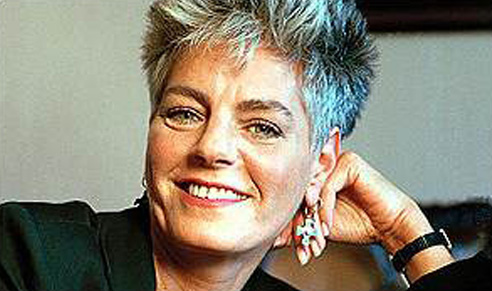On the jacket of this book you will find this information: “Julia Phillips lives in Beverly Hills.” Everything else Phillips can possibly think of to tell you about herself is inside the book, the most outspoken Hollywood memoir in recent history. Reviewers have generally disapproved, finding it trashy and its author pathetic. Reading it, however, I found myself developing a kind of admiration for Julia Phillips. She is honest. And if she is merciless, at least she does not spare herself. Not even Kitty Kelly could write a more scathing portrait of Phillips than she has written of herself.
This is the story of a bright, aggressive young woman who came to Hollywood with a dream of producing great movies, and did indeed co-produce two, “Taxi Driver” and “Close Encounters of the Third Kind,” as well as a third, “The Sting,” which won an Academy Award for best picture. But then everything started to go terribly wrong.
In the 1970s Phillips ran with a fast, talented crowd; Martin Scorsese, Steven Spielberg, Paul Schrader are among “the guys at the beach” who hung out with her and dreamed of making the great American movie. It was a time when cocaine was viewed with tolerance, if not actual affection, by Hollywood’s rich and famous, and she used it. Hundreds of thousands of dollars of it, and even, she says, in restaurants and during business meetings.
Her book is the record, among other things, of a two-decade booze-and-drug binge by an addict who had the money to buy herself whatever she wanted – although often that was a morose, monkish existence in luxury hotels where she would do drugs for lonely days, all by herself. Her companions during those years included junkies, drug dealers and free-lunch artists, and she slept with anything that moved and, by her account, some that didn’t.
Unlike many recent tell-all books, this one does not have a happy ending, because Phillips has not recovered, nor has her career. She no longer uses cocaine, it is true, and after reading of her adventures with it we understand why – the drug bankrupted and humiliated her, beat her into submission, and nearly killed her, and she simply cannot get away with it any longer. She didn’t quit, as they say, she surrendered, but she held onto her other addictions, and today Phillips maintains, chastened but not sober, on alcohol, pot, downers and endless cigarettes.
Her book takes the form of what an AA member would call a “fifth step,” in which the recovering person is asked to write down a fearless and complete account of his life and how it was affected by addiction, then share it with someone else. One purpose of this exercise is honesty, to admit that the bad things really happened and cannot be denied. Another is humility. Phillips admits to the bad times with a masochistic frankness, but humility is not her strong point, and I was left with the impression that she would still do cocaine if she weren’t sure it would kill her.
She blames most of her professional setbacks on the treachery and venality of others, not on her own decision to put drugs ahead of her career and personal life. But on the basis of the behavior she describes in this book, no Hollywood executive in his right mind would want to have anything to do with her. (Phillips’ career took so long to unwind, I suspect, because there is always a plentiful supply of executives as addled as she was.)
She would no doubt reject such an analysis; she expresses patronizing scorn or pity for former friends who have cleaned up their acts, and at a Hollywood party runs into one old pal and dismisses him with a sniff as “clean and sober,” as if that’s a fate worse than death.
And yet I admire the book. Why? Because Julia Phillips is obviously trying, in her own dogged, stubborn way, to make sense of her life and to get on a footing where she can move forward again. The book is a housecleaning, a purging, an admission of sins, an examination of conscience.
And it is also a lacerating indictment of Hollywood’s culture of status and greed. As she talks about the deals, remembers the meetings, describes the productions and quotes her friends, it is impossible to say if every fact or quotation is accurate, but the overall thrust is true. Hollywood is like this. People do say these stupid things, and have these worthless values, and lie like this, and double-cross one another, and keep exquisitely detailed psychic records of snubs and status.
She does not exaggerate. For every good guy she praises, every hero like Alan Ladd Jr. or David Brown, Schrader or Scorsese, there are a hundred creeps. This is not to say that Phillips was not often a creep herself, grabbing credit for other people’s genius just like the people she ridicules. It is simply to say that it takes one to know one.
That is easily said, but there is another message in the book that I think I detected. That is the possibility that, despite all those who do indeed believe she will never eat lunch in Hollywood again, Julia Phillips’ most important achievements are still ahead of her. She is tough and smart, a survivor. What she achieved in her 20s, while assaulting her mind with chemicals, is impressive. She has spent the years since then in futile self-deception, spinning her wheels, trying to live neither on drugs nor drug-free, trying to cut a deal with her addiction. That approach has not worked for her. This book is a call for help, and the person she is calling to is herself. She is asking her own stubborness and pride to give her a break. There might be another volume of autobiography some day.












